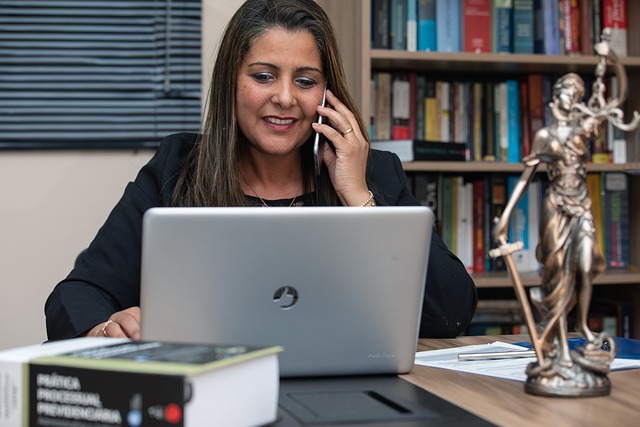In Denver, CO, telemedicine for child abuse evaluations is governed by state laws, regulations, and federal guidelines, with a focus on patient consent, healthcare professional credentials, and data security. Child abuse lawyers navigate ethical challenges related to privacy and informed consent, ensuring secure practices and fair legal proceedings. Telemedicine offers improved accessibility but requires addressing the digital divide and data protection concerns. Lawyers play a vital role in promoting transparency, cultural competency, and just outcomes for vulnerable populations seeking assistance from Denver CO child abuse lawyers.
“In the ever-evolving landscape of healthcare, telemedicine has emerged as a game-changer, particularly in challenging areas like Denver’s child abuse evaluations. This article delves into the intricate web of legal and ethical issues surrounding telemedicine’s application in this critical context. We explore the Legal Framework for Telemedicine in Denver, Ethical Considerations unique to child abuse assessments, and the resultant Challenges and Benefits of virtual assessments. Furthermore, we provide Best Practices for Denver Child Abuse Lawyers navigating this digital era.”
Legal Framework for Telemedicine in Denver

In Denver, Colorado, the legal framework for telemedicine, particularly in the context of child abuse evaluations, is governed by a combination of state laws and regulations, as well as federal guidelines. The Colorado Revised Statutes (CRS) provide a robust legal foundation for healthcare services delivered remotely, ensuring patient privacy and confidentiality. Specifically, Section 12.5-7-309 of the CRS outlines the conditions under which telemedicine is permitted, including requirements for secure video conferencing platforms and informed consent from patients or their legal guardians.
Moreover, Denver’s local regulations supplement these state laws, addressing specific aspects like the credentials and scope of practice for healthcare professionals conducting telemedicine evaluations. Given the sensitive nature of child abuse cases, there are stringent safeguards in place to protect both patients and practitioners. Child abuse lawyers in Denver CO emphasize the importance of these legal frameworks in ensuring that telemedicine services maintain the same high standards of care and ethical conduct as traditional in-person evaluations.
Ethical Considerations in Child Abuse Evaluations

In Denver, Colorado, where a significant number of child abuse cases are reported each year, telemedicine plays a growing role in evaluations due to its convenience and accessibility. However, this shift to virtual assessments presents unique ethical challenges for healthcare professionals and legal practitioners. One primary concern is maintaining the confidentiality and privacy of sensitive information shared during these remote sessions, especially when involving minors who may be vulnerable to further harm or manipulation.
Additionally, ensuring informed consent from parents or guardians and the well-being of the child during the evaluation is paramount. Legal experts, particularly Denver CO child abuse lawyers, must consider the admissibility of telemedicine evidence in court while navigating ethical boundaries to protect the best interests of the child. The dynamic nature of these virtual interactions requires a nuanced approach to guarantee fair practices and just outcomes in legal proceedings involving child abuse cases.
Challenges and Benefits of Virtual Assessments

The rise of telemedicine, especially in the context of Denver child abuse evaluations, presents both unique challenges and significant benefits. One of the primary advantages is accessibility; virtual assessments can reach children and families who might otherwise face barriers to receiving care due to geographical constraints or transportation difficulties. This is particularly crucial for vulnerable populations, ensuring that justice and support are not out of their reach.
However, challenges exist. The digital divide, where some communities lack reliable internet access, could exclude certain individuals from these services. Furthermore, maintaining the confidentiality and security of sensitive information during virtual evaluations is paramount. Legal and ethical considerations demand robust data protection measures to safeguard clients, especially when dealing with such critical matters as child abuse cases. Thus, while telemedicine offers promising solutions for efficient and comprehensive assessments, careful navigation through these challenges is essential to ensure its effectiveness and integrity in the legal context, particularly for those seeking assistance from a Denver child abuse lawyer.
Best Practices for Denver Child Abuse Lawyers

When navigating telemedicine for child abuse evaluations in Denver, CO, reputable child abuse lawyers should advocate for practices that ensure privacy, data security, and patient consent. They must familiarize themselves with the legal framework governing virtual assessments, such as adhering to HIPAA regulations and obtaining parental permission for recordings or digital documentation. Additionally, lawyers should recommend remote evaluators utilize secure video conferencing platforms equipped with encryption protocols to safeguard sensitive information.
To maintain ethical standards, Denver child abuse lawyers can suggest their colleagues stay updated on best practices in telemedicine ethics, including transparency about the virtual evaluation process with clients and ensuring informed consent for all digital interactions. They should also promote ongoing training on cultural competency to address potential barriers or biases that might influence the accuracy of remote assessments, ultimately advocating for just outcomes in these delicate cases.





